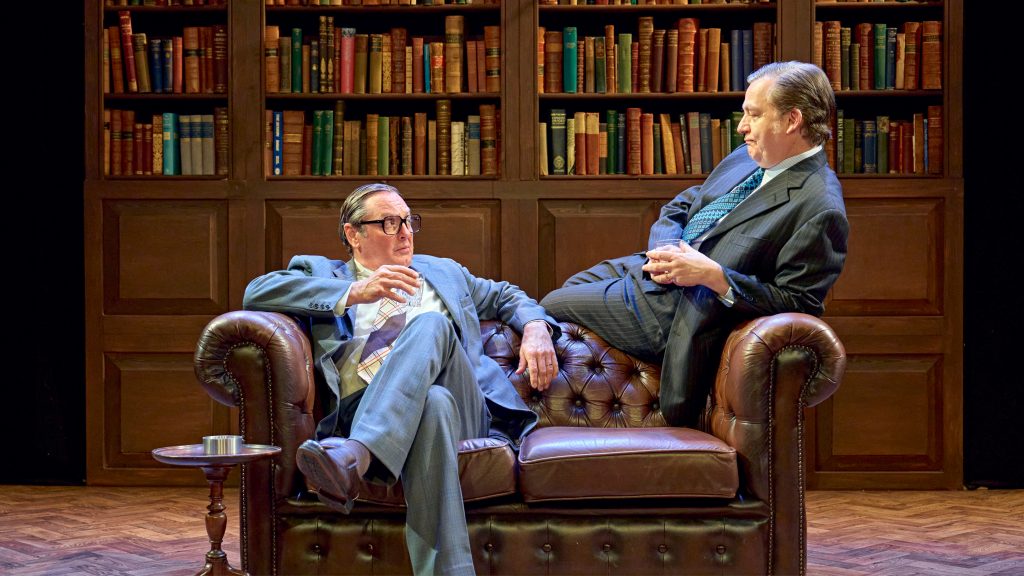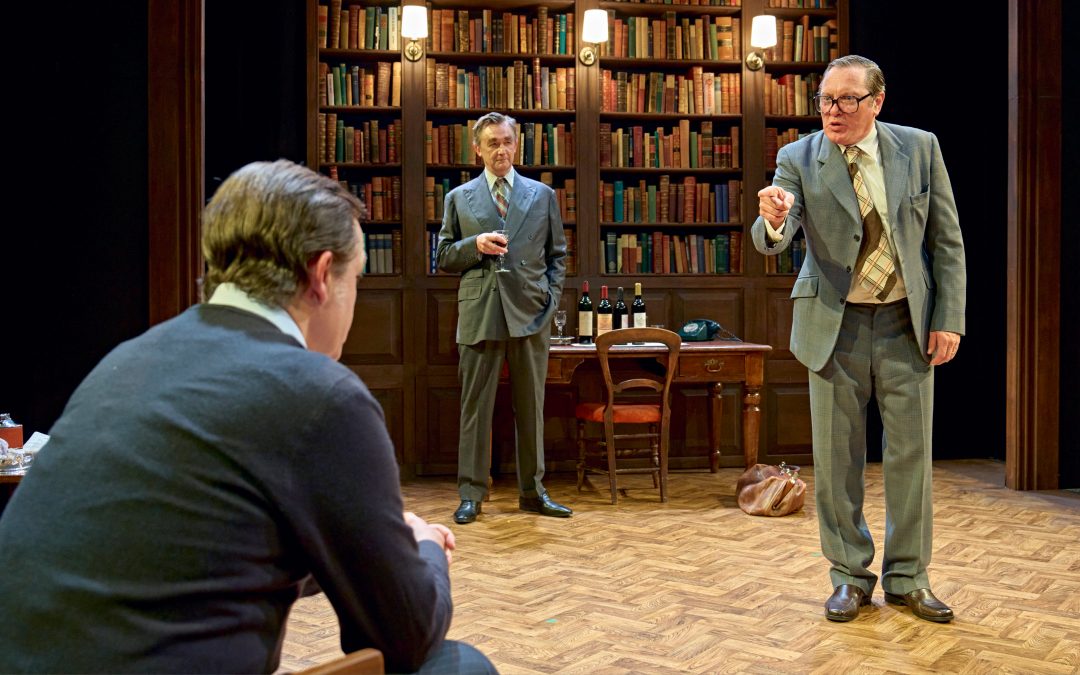This review was originally written for The Spy In The Stalls.
This Labour history is a punchy, gin-rich political psychodrama where egos clash, history pivots, and Britain’s fate slips through old hands.
The occasional soundtrack behind this formidable political drama tells of a nation undergoing change, from the raucous rock of the early ’70s to the chaotic onslaught of punk and New Wave as the ’80s approach.
But inside Libby Watson’s evocative set – all dusty books, leather sofas, and drinks trolleys – the same argument goes round and round.
Three giants of the Labour movement – Tony Crosland, Roy Jenkins, Denis Healey – all pals from war-time Oxford – cannot fathom how to seize the leadership of their party and the country.
It’s right there for the taking, if only they can agree on who should carry the flame.
With such a prize will come influence for generations. Think: no Margaret Thatcher; the leftist tendency put to the sword; no third party politics.
But these towering figures are also – and perhaps more so – towering egos and none will relinquish their claim.
In the end, the prize is lost.
In writers Robert Khan and Tom Salinksky’s reckoning, the what-ifs fly like shrapnel through the years.
That is not to suggest these three upholstered middle-aged men were on the outside. No, they were close to power, becoming the embodiment of the privileged elite. Roy Jenkins, the father of the permissive ’60s, Denis Healey, arguably the last truly charismatic chancellor, and – brightest of them all – Tony Crosland and his seminal thinking on the future of socialism.
Egos thwart a deal
And yet, the prize eluded them and was granted to lesser men, in their eyes. They marvel, at one point, how the hard left stole the party after the 1979 election defeat simply because Tony Benn and Michael Foot did a deal that avoided splitting the vote, a feat the magnificent minds of The Gang of Three simply couldn’t pull off. For years.
As Healey says at one point, “We are all children wearing our fathers’ clothes, hoping no-one will notice.”
They know their fate is to sink together, to cancel each other out, but still they cling to old disputes while the country moves on.

At the centre of director Kirsty Patrick Ward’s bitchy and erudite psychodrama are three rounded and convincing performances, not impressions but capturing the spirit of those mighty figures.
Alan Cox is Crosland, all camp teasing and frivolity; booming Colin Tierney captures the avuncular yet menacing manoeuvrings of Denis Healey; while Hywel Morgan has the hunched-up physicality (and the mispronounced Rs) of the uptight, humourless Roy Jenkins, so desperate to run a party, he eventually founded his own.
In the brisk, knowing script we jump from April 1972, just as Jenkins throws his toys out of the pram and resigns the deputy leadership, to the mournful 1980 post-mortem, Thatcher in power for a generation and Jenkins still plotting to claim the liberal throne.
By then Crosland is dead at 58, his stellar potential left unfulfilled.
- Review – Dealer’s Choice, masculinity on the turn of a card
- Review – The Brightening Air, family feuds and folklore
There is an unfortunate flashback back to 1940, suggesting a homosexual fling between Jenkins and Crosland, but beyond that, the play never puts a foot wrong. The script is dense with argument about the difficult politics of the left but all is handled with a deft and playful touch.
To those who were there, it is an exciting tribute to great men of charisma in an age of titans – and to those too young to remember, it serves as a reminder that nothing – least of all fratricide – is new in politics.
The Gang of Three is an accomplished and satisfying work, with polished performances, a witty script, endless gins and a cascade of awkward truths that are still relevant today.
The Gang of Three plays at the King’s Head Theatre, Islington, until 1 June 2025

